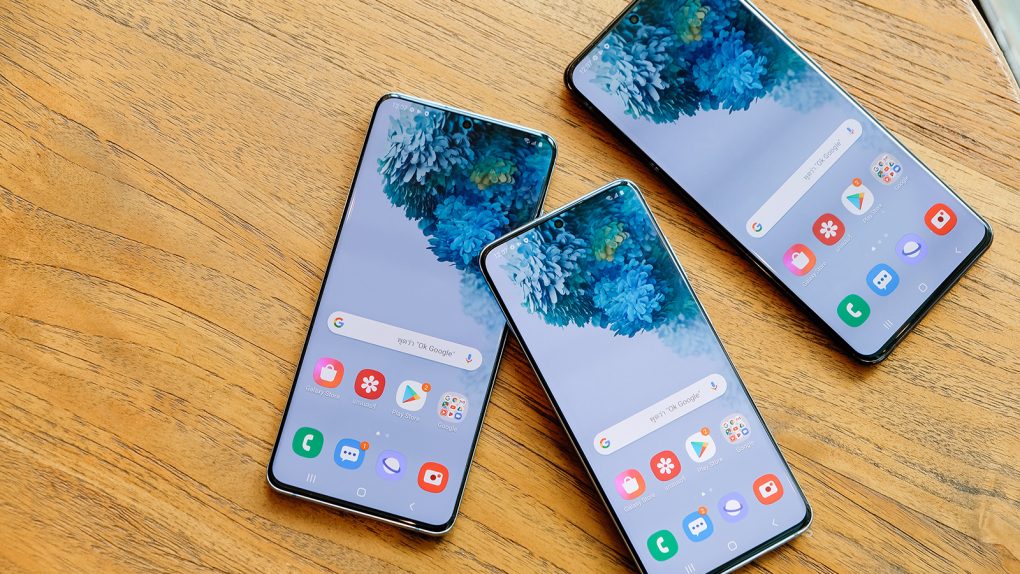The Galaxy S20 now available for preorder, which means you’ve still got a few days to wait before you can get your hands on one. But reviewers have been testing the new phones for quite a while, with a special focus on the Ultra model, which includes the best Samsung camera system to date, and also the biggest battery.
Unsurprisingly, the first speed tests are also here, and there’s one comparison we know you want to see. The newest Android flagships are always stacked up against the latest iPhones, and the same goes for the S20 Ultra. The Galaxy S20 is Samsung’s response to the iPhone 11, so the Ultra is being pitted against the iPhone 11 Pro Max in the following real-life speed test. The result won’t be a surprise to anyone familiar with these handsets.
Leaked benchmarks revealed the Snapdragon 865 processor that powers the Galaxy S20 series wouldn’t be able to match the A13 chip inside the iPhone 11, although Qualcomm’s processor is slowly closing the gap. The first “lap” in Everything Apple Pro’s test below proves that. The iPhone 11 Pro Max loads apps faster than the Galaxy S20, although the Snapdragon 865 is faster than the 855 that powered the Galaxy Note 10.
A similar test last year showed that the new Note can’t outperform the iPhone 11 when it comes to speed, but it does have a huge advantage over the iPhone, and that’s memory. The Galaxy Note 10 was able to reload the same set of apps faster than the iPhone 11 did in that test, and that’s thanks to its extra memory. That’s the second “lap” in this real-life speed comparison, and its purpose is to measure the phone’s multitasking ability.
The S20 Ultra has 12GB of RAM running at faster speeds than the iPhone 11’s 4GB of RAM. Naturally, the S20 can reload apps faster than the iPhone, and that’s why it’s the clear winner in this lap. Not to mention that the S20 Ultra’s display was set at 120Hz during the test, compared to the iPhone’s 60Hz screen.
As optimized as the iPhone’s RAM management might be, the iPhone has been losing this second lap in speed tests for a few years now, because Android handset makers have steadily increased the RAM on their phones. The Pixel 4 is an exception, but it’s also not exactly a best-seller in the Android market. So even if the iPhone is faster at loading apps, a Snapdragon 865 phone with plenty of RAM will offer a great overall Android experience.
The S20 Ultra has the same core specs the other S20 models, just as the three iPhone 11 models are powered by the same flagship A-series chip. That means the cheapest iPhone 11 is faster than the more expensive S20 Ultra when it comes to CPU power (opening apps), but the differences are negligible. Meanwhile, all the S20 phones feature more memory than any of the iPhone 11 models, which means they’ll always have more apps ready to go from memory, which could reduce waiting times. Of course, given that the iPhone 11 is so fast, you hardly have to wait for apps to open anyway. But, with more RAM, you won’t have to worry about losing content from some apps as you switch back and forth between them.
Apple, however, is expected to increase the RAM of its devices with the iPhone 12. As we’ve already explained, the S20 Ultra features a new memory type that’s even faster than the iPhone 11’s RAM. Also, the new RAM doesn’t go lower than 6GB, which is probably the minimum amount of memory for the upcoming iPhone series.







